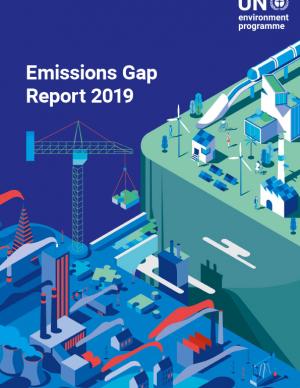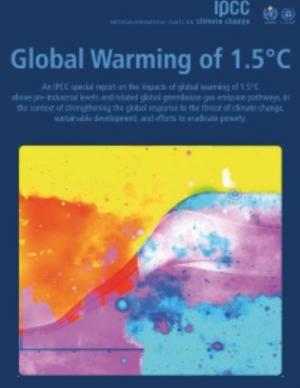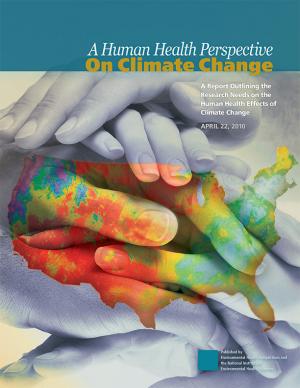Access a range of climate-related reports issued by government agencies and scientific organizations. Browse the reports listed below, or filter by scope, content, or focus in the boxes above. To expand your results, click the Clear Filters link.
This is the FY22 edition of the U.S. Gllobal Change Research Program's annual report to Congress mandated by the the Global Change Research Act. The report provides an overview of the Program’s progress in delivering on its strategic goals as well as a summary of agency expenditures under USGCRP’s budget crosscut.
The world continues to emit greenhouse gases while the planet's climate is changing faster than ever. This report intends to take up the latest and most essential scientific findings published in an extraordinary year—the climate science year in review.
As the world strives to cut greenhouse gas emissions and limit climate change, it is crucial to track progress towards globally agreed climate goals. For a decade, the Emissions Gap Report has compared where greenhouse gas emissions are heading against where they need to be, and highlighted the best ways to close the gap. This report presents the latest data on the expected gap in 2030 for the 1.5°C and 2°C temperature targets of the Paris Agreement. It considers different scenarios, from no new climate policies since 2005 to full implementation of all national commitments under the Paris Agreement. For the first time, it looks at how large annual cuts would need to be from 2020 to 2030 to stay on track to meeting the Paris goals. The report looks at the potential of the energy transition—particularly in the power, transport, and buildings sectors—and efficiency in the use of materials such as iron steel and cement.
This special report from the Intergovernmental Panel on Climate change describes the impacts of global warming of 1.5 °C above pre-industrial levels. The report also describes potential global greenhouse gas emission pathways, in the context of strengthening the global response to the threat of climate change, sustainable development, and efforts to eradicate poverty.
As incomes rise and populations grow, especially in the world’s hotter regions, the use of air conditioners is becoming increasingly common. In fact, the use of air conditioners and electric fans already accounts for about a fifth of the total electricity in buildings around the world–or 10 percent of all global electricity consumption. Over the next three decades, the use of ACs is set to soar, becoming one of the top drivers of global electricity demand. This new analysis by the International Energy Agency shows how new standards can help the world avoid facing such a “cold crunch” by helping improve efficiency while also staying cool.
This Synthesis Report summarizes the Fifth Assessment Report (AR5) of the Intergovernmental Panel on Climate Change (IPCC). This report distills, synthesizes, and integrates the key findings of the three IPCC Working Group contributions—The Physical Science Basis; Impacts, Adaptation, and Vulnerability; and Mitigation of Climate Change—to the AR5 for the benefit of decision makers in government, the private sector, and the general public. The report also includes findings from two Special Reports released in 2011: Renewable Energy Sources and Climate Change Mitigation and Managing the Risks of Extreme Events and Disasters to Advance Climate Change Adaptation. The Synthesis Report confirms that climate change caused by human activities is having impacts on ecosystems and human well-being across the U.S. and around the world.
This report quantifies the outcomes of different stabilization targets for greenhouse gas concentrations using analyses and information drawn from the scientific literature. Although it does not recommend or justify any particular stabilization target, it does provide important scientific insights about the relationships among emissions, greenhouse gas concentrations, temperatures, and impacts. The report emphasizes the importance of 21st century choices regarding long-term climate stabilization, and is a useful resource for scientists, educators, and policy makers, among others.
This report, by a federal working group led by the National Institute of Environmental Health Sciences, highlights 11 key categories of diseases and other health consequences that are occurring or will occur due to climate change. The report provides a starting point for coordination of federal research to better understand climate’s impact on human health. The recommendations of the working group include research to identify who will be most vulnerable, and what efforts will be most beneficial.











